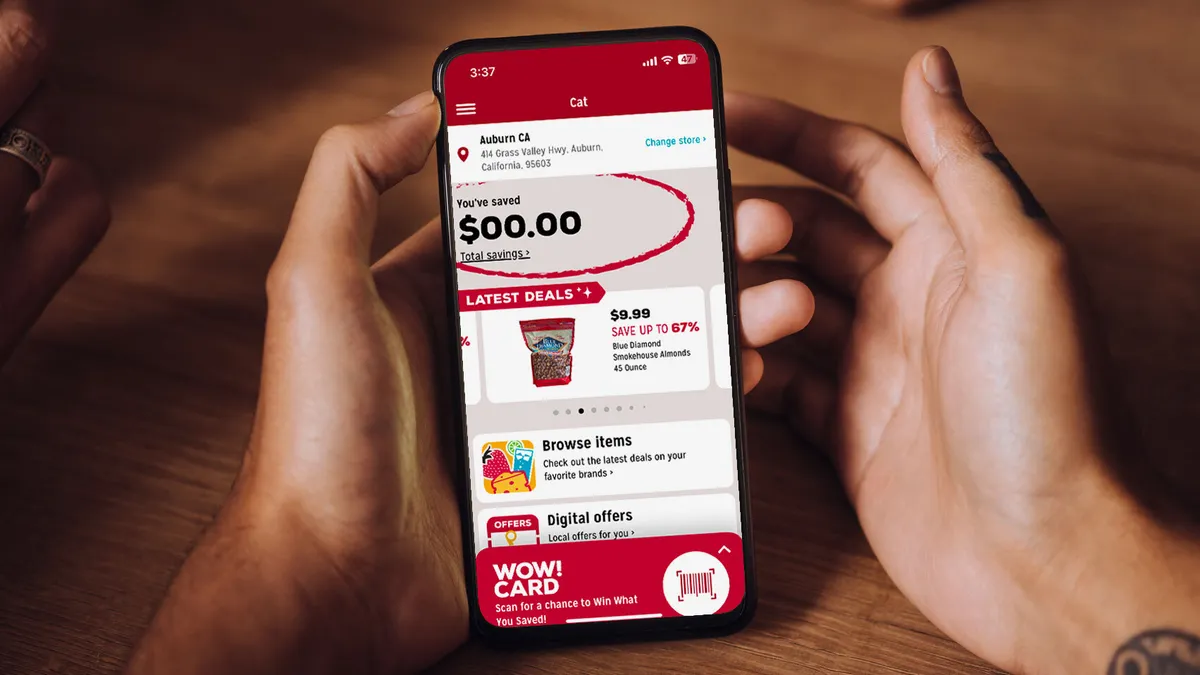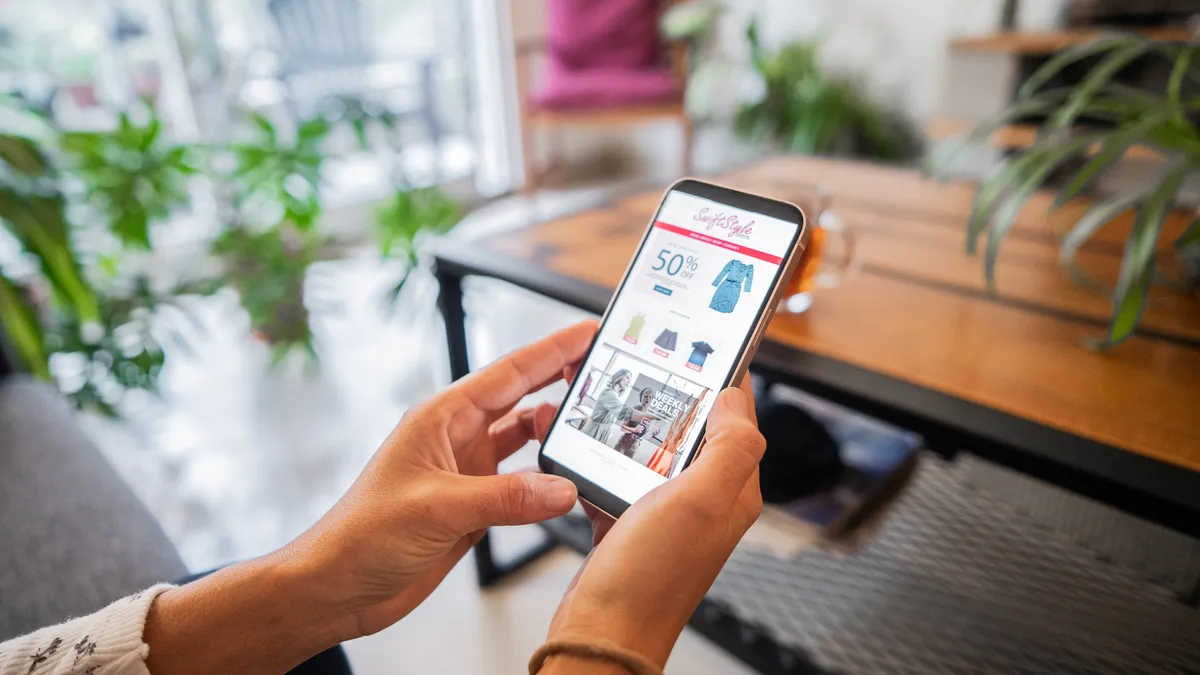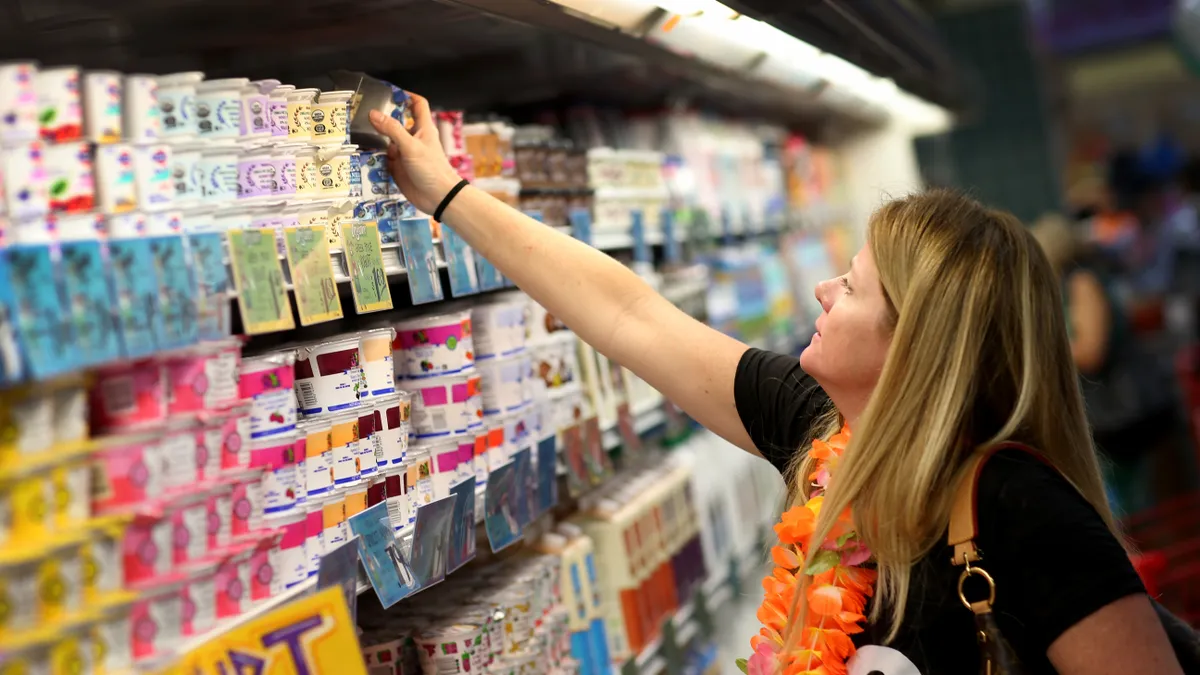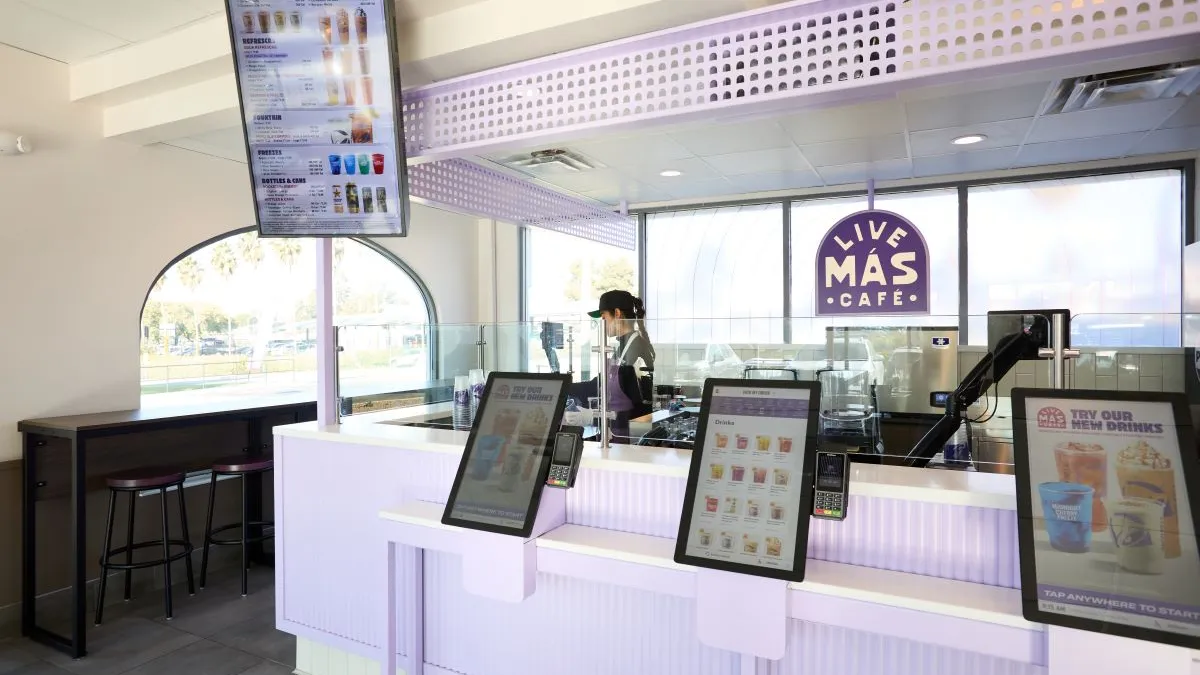Grocery Outlet recently launched an app that’s unlike those of other food retailers, with an emphasis solely on promoting savings while driving customers to its stores.
Grocery Outlet completed the rollout of its no-frills app to all of its stores in its first fiscal quarter of this year and saw an instant response from shoppers. During the discounter’s most recent earnings call in August, President and CEO R.J. Sheedy noted that the app had over 700,000 total downloads at the end of the second quarter.
“We continue to see high levels of customer engagement with our personalization app. … Our app allows us to communicate our weekly deals to customers, provide early access to special offers and customize their treasure hunt experience,” Sheedy told investors.
The new app comes at a time when the grocery industry is focusing on providing omnichannel experiences and turning to apps as a way to bridge online and in-store shopping. While many supermarkets, mass retailers and discounters are grappling with e-commerce profitability challenges even as they bring in online sales through their apps, Grocery Outlet's new app emphasizes two core facets of its identity: discounts and in-person shopping.
Grocery Outlet’s website describes its app as “a central hub where you can see the most up-to-date deals, in-stock products and exclusive offers at any time.”
Inside Grocery Outlet’s app
Grocery Outlet wants to excite its shoppers with the savings they can get at stores — a strategy that the company’s app reinforces at every turn with personalized savings tools.
After picking their preferred store, users can view the latest deals at that location, browse the digital aisles and see their savings as well as their spending — total, monthly or yearly — from past purchases linked to their loyalty card.
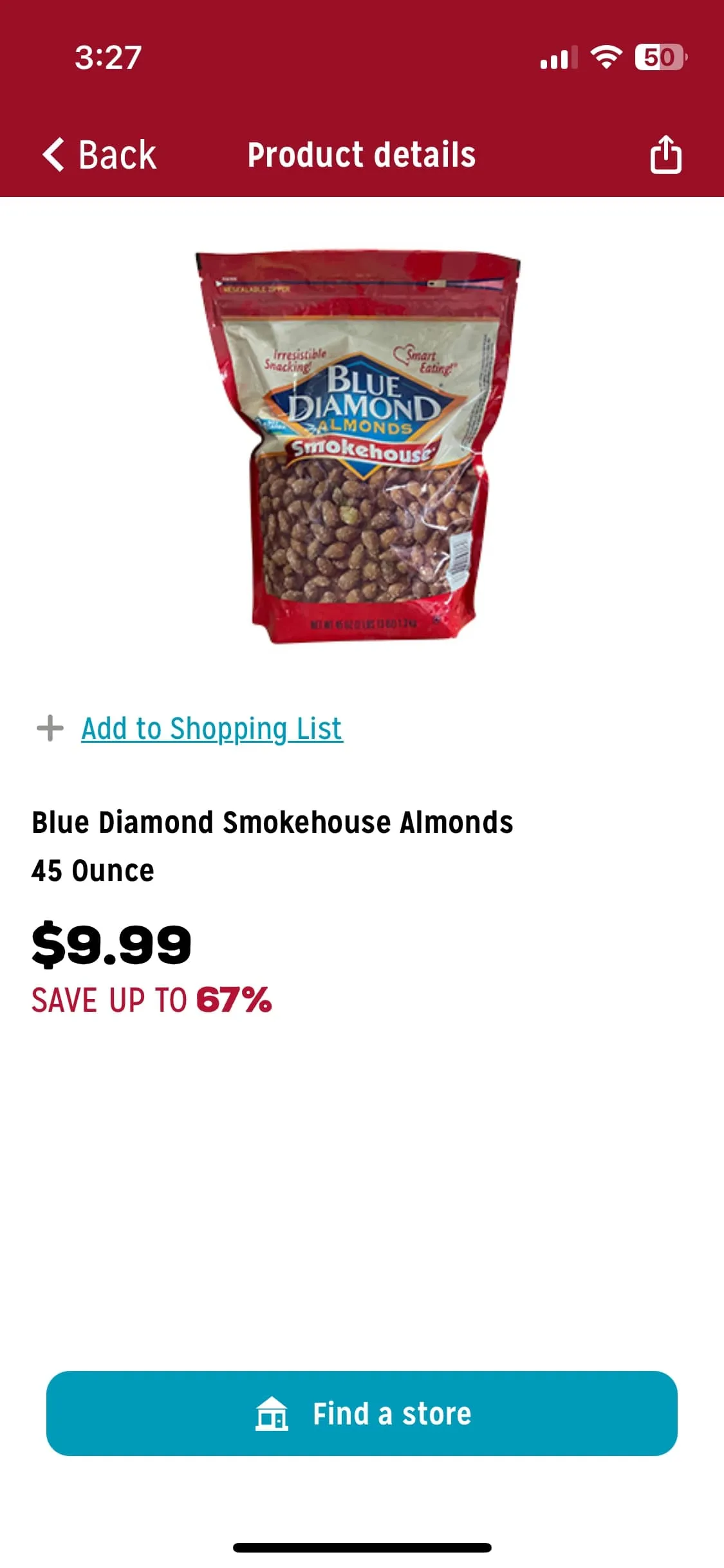
The “Digital offers” and “Sweepstakes” sections show coupons and contests. Under the former, Grocery Dive spotted a coupon that provides $5 off a purchase of at least $25. In September the grocer is running a sweepstakes for “free groceries for a year” for people who provide their loyalty number when they shop to earn entries. The grocer’s app is also promoting a “Win What You Saved” sweepstakes, which rewards five shoppers every month.
Red-lettered messages that highlight just how much the discount grocer has reduced prices are the focal point of the app. This includes a 45-ounce bag of Blue Diamond almonds for $9.99, which is a savings of “up to” 67% off, and a 79-cent can of Del Monte Fresh style green beans that represents savings of “up to” 76%.
The “Weekly ad” section lets users see potential savings by category, including beverages, bread and bakery, dairy, deli, fresh meat and frozen. Customers can add items to their digital shopping list and sort items by “most popular” or “highest savings” when browsing the digital aisles.
The “Wow alerts” section shows featured discounts based on the selected store location.
Two pop-ups — an “exclusive offer” to get 10 bonus entries for Win What You Saved when opting in for email alerts and a $5 in-app coupon — appeared during a nearly one-hour span of using the app.
Customers who use their digital loyalty card or phone number when checking out can track their purchase history in the app.
How the app stacks up
In comparison to other grocery apps offered by companies like Giant Food or Walmart, Grocery Outlet’s app provides a stripped-down grocery shopping experience with savings as the primary focus. The app’s product pages, for example, include a photo of the item, its name, price and discount percentage but don’t list ingredients or nutritional information.
In addition, while Grocery Outlet’s app places an emphasis on showing product discounts by store location, it doesn’t allow customers to place an online order. (People who want to shop Grocery Outlet online have to go to one of its e-commerce partners: Uber, DoorDash or Instacart).
The Grocery Outlet app also doesn’t appear to have other features that are common on other retailer apps, like recommendations on product pages, SNAP eligibility information or reviews. There also don’t appear to be any coupons users can clip for individual products — a nod to the discounter’s focus on low prices through its opportunistic buying model.
It’s clear the app aims to be a tool for in-store customers or for people planning their shopping lists before going to the store.
In the August call, Sheedy noted that the app is a “traffic driver,” noting that the real-time store inventory reflected on the app “is a great way to bring customers in.”
“We believe that this app will increase engagement even further and lead to greater customer loyalty, which should accelerate trip frequency and share of wallet growth,” he said.



